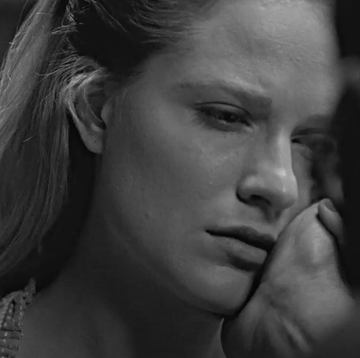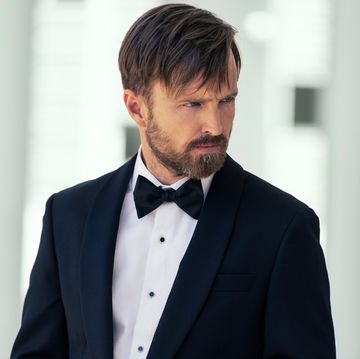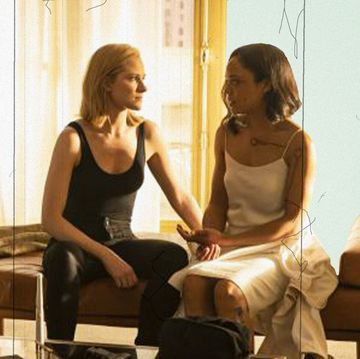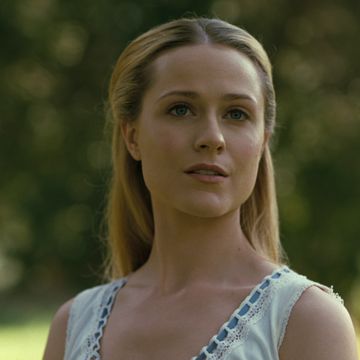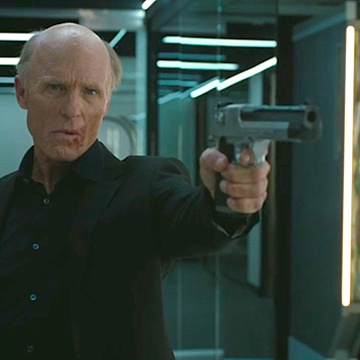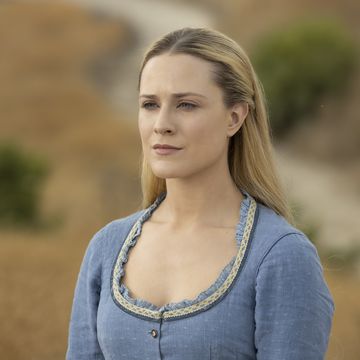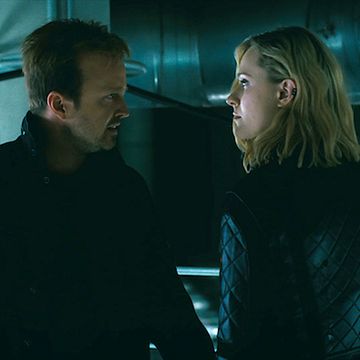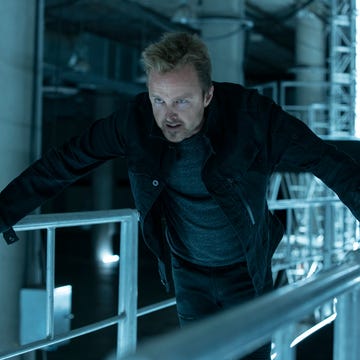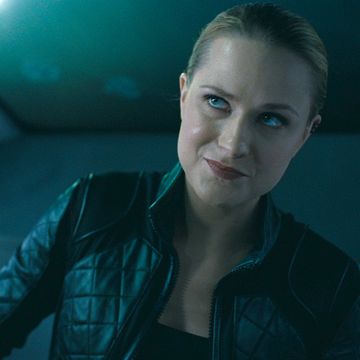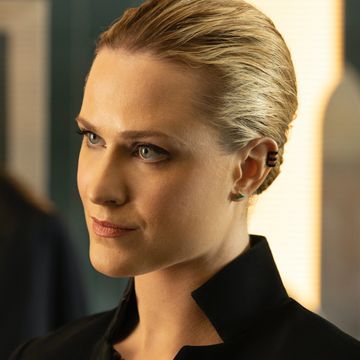Westworld didn't make anything easy in its first season, including providing a character the audience could root for. Everything we knew about the hosts had been manufactured, and any pathos we felt for them was the same pity we'd evoke for a broken toy. The same goes for the humans in this show—they're all callous assholes who are hungry for money, or power, or the need to be entertained. They fuck and kill their way through Westworld, or real life, or both.
As these hosts awakened and we made our way to the center of the maze, these characters shifted and evolved, as did our relationship with them. And Sunday night's season finale revealed nearly the clear picture of these people, these machines, and their motives. In the end, Robert Ford had a change of heart, releasing his enslaved machines as both an act of kindness and revenge against the board. But his motives were morally ambiguous. Then there's William, who appeared to be a protagonist, but turned out to be the twisted and jaded Man in Black. Dolores murdered a whole town and both her creators on her path to transience. Maeve killed a bunch of possibly innocent Westworld employees.
Finally, there's Bernard. Played with stunning nuance by Jeffrey Wright, the character becomes the most sympathetic character on Westworld as his true identity unravels. Curiously, he becomes the most human as we find out he's actually a machine. He exhibited a tragic range of emotions when Bernard found out he's a host that was ordered to kill his lover. His confusion and pain when he learns he's a echo of Westworld's murdered creator is complex and powerful. The warmth he has for Dolores during their little chats as Arnold in one of two parallel timelines is beautiful, and represents the good of humanity. He's the tortured hero who tried to save his creations from an eternity of torment. He's the victim made to do the bidding of his twisted god.
ESQ: Did you know from the beginning that your character would A) be a host, and B) be Arnold? Or is that something you kind of learned along the way?
Jeffery Wright: I didn't know when we shot the pilot. But when we came back to kick off the full production of the season, prior to Episode Two, Lisa Joy pulled me into her office one day and dropped the bomb on my head. It would've been a little bit of a disservice for me not to understand that there were two timelines that Bernard was navigating, and that there were these two different bodies that I was inhabiting. Otherwise, the conversation that Arnold had with Dolores would've made no plausible sense for Bernard. So, yeah, it was necessary that I be aware of that so that my mind wouldn't be further twisted.
As an actor, how do you essentially pull off playing two characters at once?
Well, thankfully it's on the page, so the gig for me is just to react to what's there. And because of the nature of Arnold's relationship to Dolores—which is almost entirely how we see him up until the final episode—because that relationship is a paternal one and is also one of creator and created, and she becomes a surrogate for this profound loss that he's experienced, or proxy, there's a lot of intimacy and a lot of vulnerability and warmth in those exchanges. So the nature of that relationship informed what I was doing in a way that nothing else in Bernard's world would inform him. In taking the words off the page, it influenced what I was doing. Bernard is an echo of Arnold, he's a facsimile. Arnold is his slightly more heightened version—or, rather, Arnold's emotions and thoughts are slightly more heightened than Bernard's just by the nature of the design.
In the finale, we finally see Dolores shoot Arnold, along with the rest of the hosts. How did you interpret this decision that he made?
I think he's clearly undone by the loss of his son, and his desire to play creator is driven into a more personal phase than Ford for that reason. And Ford warns of the dangers of falling into over-romanticizing the nature of the technology. It's exactly what Arnold does, and I think it has to do with the impact of that loss on him. His final directive to Dolores is as much informed by his desire to undo Ford as it is a desire to end his own suffering.
In a sense, his sacrifice in trying to save these hosts, is he the only true human hero in this show?
Um, we'll see. I caution against trying to anticipate John and Lisa's thinking. But, clearly, Arnold's not going anywhere. So this will remain to be seen. But, again, I don't swim in their waters until they define how deep they are for me. They're out there. They're way out there. It depends. How do you define his heroism? Is it out of a desire to protect the hosts? I guess within the cosmology that we've defined, yeah, he's certainly the most empathizing, the most human.
Did it seem to you that this kind of humanity of his unraveled and became more clear as we actually found out that he was a machine?
Yeah, it's an odd idea. But clearly, from the start, J. J. Abrams and Jon were intent to explore Westworld from the perspective of the hosts and to generate sympathy for the tension that they experience through their evolution and awakening. And I guess for Bernard, in that he has been perceived as a human and him finally understanding that the biggest lie told on any of the hosts has been about him, that tension is pretty fertile ground, right? So I was kind of given a fair amount to resonate with the audience. Ideally, the audience is drawn to him more once they discover that he's not human. There is certainly irony there.
Despite the technology—which, clearly, is relevant to the story and relevant to the times outside of the story—for me, viewing the hosts as characters or as archetypes was more where I found myself. And reading their storylines and their journeys of self-discovery—or not—was a metaphor for human journey. What was clear even from the first episode was that kind of classic mythical ideas and relationships are being explored here, like in the traditional Greek sense with the relationship to the gods and the men—or in our case, the creators and the hosts. The tradition is always that the lesser is actually greater.
The show's officially coming back for a second season. What do you know of it so far, and what do you see could be Bernard's main struggle going forward? I mean, he's kind of now the only remaining creator and also a creation of Ford's mind, and Ford's gone.
What I'm curious about is that Bernard is more so than the spook who sat by the door—he's the spook who runs the show. It seems that's where he is now. There's going to be a total awareness of his duality. I'm curious to explore that.
Have you had any conversations on that yet, or the second season? Or are you guys just taking a little break for now until you get moving on that?
We've had some preliminary chats. But I'm so respectful and appreciative of Jon and Lisa and our writers, so I'll just give them time to do their work before I even begin to talk about their work.





